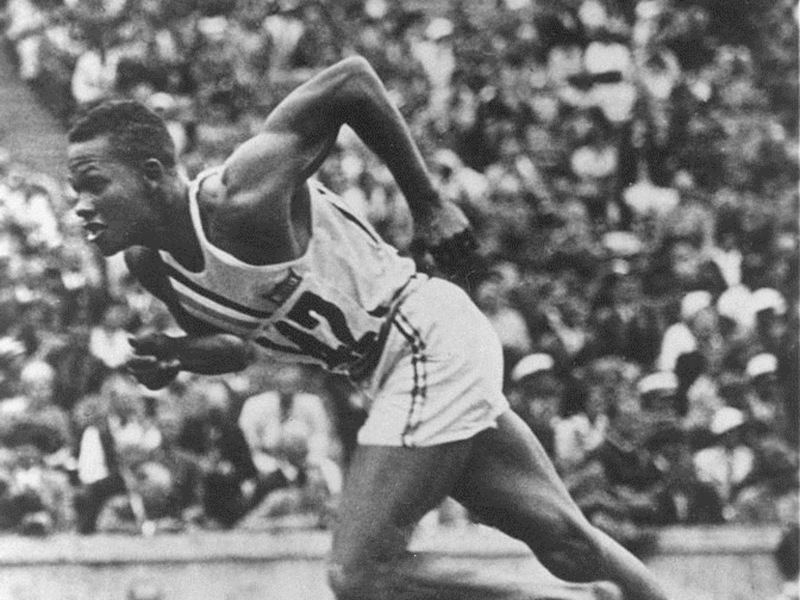If you want to plan your Black History Month schedule around available television programming, you have lots of choices.
As the saying goes, check your local TV listings.
Many network and cable stations send out announcements of Black History Month offerings around this time of year, which is why I know PBS, BET, TVone and others will have a variety of programs I plan to catch or record.
I have already enjoyed the "NAACP Image Awards" on NBC last weekend and I plan to watch the provocative documentary "Slavery by Another Name" when it airs Feb. 13 on PBS. Also, the award-winning Broadway play "Having Our Say: The Delaney Sister" runs on BET at various times this month.
Some TV channels plan special Black History Month offerings but at Milwaukee's public TV MPTV channels 10/36, regular programming for an African-American audience has been part of the roster for decades, including the Emmy-winning "Black Nouveau."
According to Liddie Collins, producer for Milwaukee public TV's "Black Nouveau," February isn't that much different from their standard approach to programming.
"We do black history all the time, we spotlight black achievements in the community, focus on young people and tell stories. We just don't do it (February)."
Collins said Black Nouveau helped fill a void lacking on other TV channels. Except for this particular month, that is.
(Full disclosure: I'm a former host of "Black Nouveau.")
My own Black History Month viewing began this week by catching up with past episodes of "The Corner," on HBO, a ground-breaking dramatic series about the drug plague that decimated inner city neighborhoods in Baltimore during the 1990s.
"The Corner" was an award winning series on HBO, first aired in 2000, and was based on a best-selling book and was the fore-runner of similar quality programs like "The Wire" and "Homicide: Life on the Streets."
More than any other show of its kind, "The Corner" had a documentary style framework that allowed talented actors to present an sobering look at the ravages of drug abuse on individual members of a distinct community who were caught in the addiction.
It offered a gritty portrait of real circumstances as it followed the lives of drug den inhabitants and neighborhood characters caught up in a heroin and cocaine street open-air market that courted no future other than incarceration of death.
Shot on location in an authentic Baltimore neighborhood, "The Corner" garnered prizes and awards even as some of the real characters the book and TV show were based on met typical demises due to drug overdoes or violence.
It was interesting to catch up with "The Corner" when it aired this week; I hadn't seen it in years. I do remember that it wasn't one of my favorites at the time because nothing about the show was entertainment for me. Due to the stark depiction of what life on the streets was truly like, it was more like a documentary about the collapse of black neighborhoods like the one I grew up in Phladelphia.
I left my old neighborhood in the late 1980s around the time crack cocaine began to invade the lives of many residents.
During my time living in Milwaukee, I went back and forth to visit family and friends during the period that many sociologists have targeted as the crucial years when the crack cocaine plague decimated African-American communities.
My own brother was claimed as a victim. Older sibling Neil was a stone crack addict for at least five years before finally going clean. But a few years later, he died of a heart attack in his sleep at the age of 47. A brittle diabetic for most of his adult life, the drugs had taken their toll.
Many of the addicts in my old neighborhood were once childhood friends, some who even had dreams of college and professional careers just like I did.
There was always temptation but the main deciding factor for many addicts the way I remember was the ability to simply get away from the poison that had invaded the neighborhood.
Or just never try it for the first time at all.
Some black people had problems watching Roots when it first aired because of the stark depiction of slavery; these days it's a Black History Month staple.
The same goes for docudramas about the lives of pioneers like Rosa Parks, Harriet Tubman, Martin Luther King JR. and others.
Often, there's a tragic end to some of the characters depicted in the struggle but the hope continues on.
I believe it would be better to have this diversity of programming all year long instead of a concentrated burst of attention during a shortened month that can give the wrong impression. Everything about Black History doesn't have to be a downer, most of it is triumphant.
We can't ignore the warning shot a show like The Corner delivered. It's just unsettling to recognize some things - particularly society's approach to dealing with drug addiction and incarceration - really haven't changed that much.
That might be the saddest Black History Month lesson of all.
Eugene Kane is veteran Milwaukee journalist and nationally award winning columnist.
Kane writes about a variety of important issues in Milwaukee and society that impact residents of all backgrounds.







